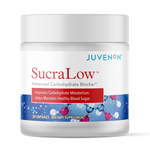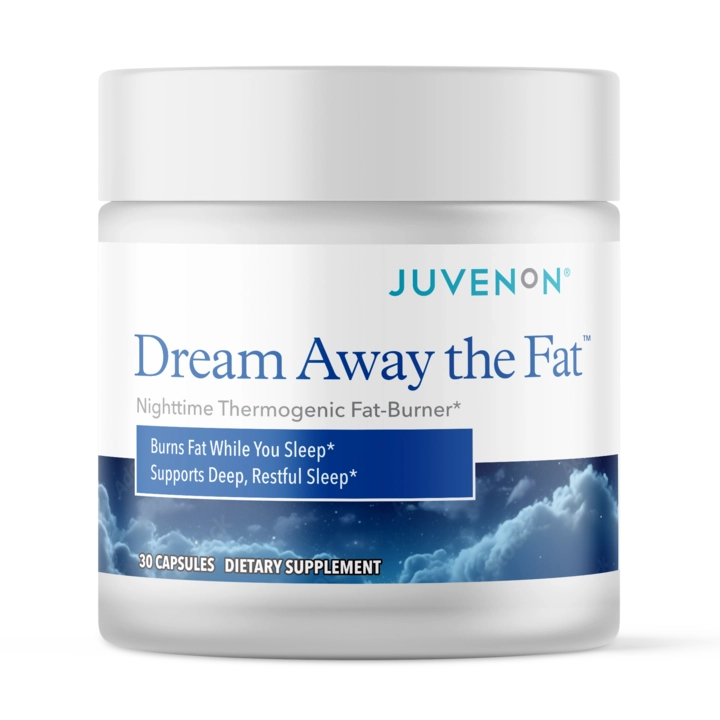For aging adults, keeping a healthy bladder comes with its challenges. From bladder leakage to urinary frequency, poor bladder function can tremendously affect health and quality of life. In this article, we will explore one of the most common types of bladder problems — having an overactive bladder. We will learn about the causes, who it affects, and how supplementation can play a vital role in prevention.
What is an overactive bladder?
Having an overactive bladder means a person is experiencing frequent, sudden urges to urinate. These urges can be so strong that it's difficult or impossible to hold it in.
What is the main cause of an overactive bladder?
An overactive bladder is not caused by one single thing. For some, it can be triggered by diseases such as diabetes or multiple sclerosis. Women in menopause often experience an overactive bladder due to hormonal fluctuations. Men with prostate issues may also face the same problems.
Excess consumption of coffee, alcohol, sodas, and even certain medications can cause an overactive bladder.
Ailments such as nerve or brain disorders, muscle weakness, injury, or surgery can also trigger an overactive bladder.
For many, an overactive bladder is a simple case of “wear and tear.” The older we get, the more likely our bodies areto experience some level of dysfunction. The bladder, an organ involved in a number of bodily functions, is very susceptible to degradation over time.
At the root of all bladder problems is inflammation. An overactive bladder is more present in people with a lower inflammatory response, whether from disease, hormonal changes, or anything else.
How to prevent bladder issues
Maintaining a healthy lifestyle through proper diet and exercise may help prevent bladder issues.
When diet and exercise aren’t enough, supplements can play a crucial role.
Supplements offer many potential benefits when it comes to alleviating urgent and frequent urination. They are well-researched and convenient, and give users the opportunity to strengthen their bladder function before it goes on the decline.
Who can benefit from bladder support supplements?
While having an overactive bladder can affect anyone, older people and women are at the greatest risk of this issue. According to Cleveland Clinic, 33 million Americans suffer from having an overactive bladder, with the demographic being 30% male and 40% female.
Anyone who has noticed a decline in their bladder function, or has any of the risk factors can benefit from bladder support supplements.
How do these supplements work?
Bladder support supplements can improve bladder function in these ways:
- Boost muscle strength (in the bladder and pelvic floor)
- Reduce the urge to go
- Improve the body’s response to inflammation
- Support healthy nervous system function
There are various nutrients out there that can support healthy bladder function, but we’ve outlined 6 natural supplements that we feel make the biggest impact on an overactive bladder.
Let’s take a look at each nutrient and how it supports bladder health.
Supplements that help with an overactive bladder
1) Three Leaf Caper Extract
Three leaf caper extract is derived from the caper plant, which is a natural diuretic and anti-inflammatory that has been used throughout centuries in Ayurvedic medicine.
Three leaf caper is lauded for its potential to boost muscle strength in the bladder and decrease urinary incontinence.
In a study from The University of Queensland, three leaf caper extract significantly decreased urine volume in subjects with neurogenic bladder – which is an overactive bladder caused by a brain or nerve disorder.
2) Lindera Extract
Lindera extract, known as both spicebush root and allspice root, is a plant native to both China and North America. Used for millennia in Chinese medicine, lindera extract is a potent antioxidant with powerful free radical scavenging potential.
Due to its antioxidant and anti-inflammatory properties, lindera extract can reduce urinary frequency and support healthier bladder function in people with urinary incontinence.
3) Pumpkin Seed Extract
Pumpkin seed (Cucurbita pepo) extract is one of the most studied nutrients for an overactive bladder. The history of pumpkin seed’s medicinal use tracks back over 7,500 years ago to Oaxaca, Mexico. Even then, the seeds were used as treatment for an overactive bladder. It’s proven to stand the test of time and science over the course of history.
A study published by The Elsevier Journal of Traditional and Contemporary Medicine shows that pumpkin seed extract improves urinary disorders in people with an overactive bladder.
Scientists discovered that pumpkin seed extract significantly reduced the occurrence of urination, including nocturia (the amount of times a person wakes up to urinate).
4) Cissus Extract
The cissus plant, also known as treebine, is a well-studied anti-inflammatory and antioxidant. For these reasons, it’s been used throughout history as a treatment for urinary tract infections.
Many studies show that cissus effectively kills pathogens and bacteria associated with UTIs, and can promote urinary health.
This can be very important for people with an overactive bladder. Cissus has the potential to both fight inflammation and prevent UTIs, which are common among people who suffer from bladder issues.
5) Soy Extract
Most people associate soy with food, but soy has medicinal effects that can benefit people with an overactive bladder.
A Japanese study from Nagoya City University’s Department of Nephro-urology, it was found that routine use of soy extract can treat and prevent symptoms of having an overactive bladder.
Additionally, in a separate study from The Journal of Functional Foods, it was found that supplementing soy extract with pumpkin seed oil extract reduces the number of urinary voids with overactive bladder, leading to improvements in symptoms and better quality of life.
6) Saw Palmetto Berry Extract
Native to the Southeastern United States, saw palmetto is a nutrient-rich plant prized for its powerful berries. The berries have ultra-high levels of antioxidants, which has made it a top-rated natural medicine for thousands of years.
For overactive bladders, saw palmetto berry extract can reduce urinary frequency and urgency and promote hormonal balance for optimal bladder function.
One study found that saw palmetto significantly improved urination issues over the course of just 12 weeks of continuous supplementation.
Choosing the right supplement for the most benefits
The six supplements outlined above have great potential for promoting healthy bladder function. One can use these supplements individually, but obtaining high-quality, clinically relevant doses of each can prove cumbersome. However, there is a supplement designed with all 6 nutrients that can help people support their bladder health.
Iron Bladder is the latest supplement created by the Juvenon team. Clinically recommended by nationally acclaimed, board-certified physician Dr. Darren Farnesi, Iron Bladder is uniquely crafted to support bladder function:
- Reduce urgency and frequency of urination
- Improve occurrences of bladder leakage
- Strengthen bladder muscles and pelvic floor
- Lessen nighttime trips to the bathroom
- Support urinary tract health
- Aid the body’s inflammatory response
If you’re struggling with an overactive bladder, click here to learn more about Iron Bladder and see if it's right for you.
Conclusion
Having an overactive bladder can be difficult to manage, but with effective supplementation, it is possible to prevent or reduce symptoms.
By understanding the causes and treatments for overactive bladder, one is better equipped to manage the symptoms.
Choosing the right supplement can help one gain more control over their overactive bladder. Iron Bladder by Juvenon contains clinically studied ingredients and is backed by the latest scientific research. With proper use, Iron Bladder can help make a positive impact on long-term bladder health.
References:
- Cleveland Clinic Medical. “Overactive Bladder (OAB): Causes, Symptoms & Treatment.”Cleveland Clinic.
- Schoendorfer, Niikee, et al. “Urox Containing Concentrated Extracts of Crataeva Nurvala Stem Bark, Equisetum Arvense Stem and Lindera Aggregata Root, in the Treatment of Symptoms of Overactive Bladder and Urinary Incontinence: A Phase 2, Randomised, Double-Blind Placebo Controlled Trial.”BMC Complementary and Alternative Medicine, U.S. National Library of Medicine, 31 Jan. 2018
- Nishimura, Mie, et al. “Pumpkin Seed Oil Extracted from Cucurbita Maxima Improves Urinary Disorder in Human Overactive Bladder.”Journal of Traditional and Complementary Medicine, U.S. National Library of Medicine, Jan. 2014
- Wu S; Rajeshkumar S; Madasamy M; Mahendran V. “Green Synthesis of Copper Nanoparticles Using Cissus Vitiginea and Its Antioxidant and Antibacterial Activity against Urinary Tract Infection Pathogens.”Artificial Cells, Nanomedicine, and Biotechnology, U.S. National Library of Medicine
- Okada S; Kojima Y; Hamamoto S; Mizuno K; Sasaki S; Kohri K; “Dietary Soy Isoflavone Replacement Improves Detrusor Overactivity of Ovariectomized Rats with Altered Connexin-43 Expression in the Urinary Bladder.”BJU International, U.S. National Library of Medicine
- Bongseok Shim a, et al. “A Randomized Double-Blind Placebo-Controlled Clinical Trial of a Product Containing Pumpkin Seed Extract and Soy Germ Extract to Improve Overactive Bladder-Related Voiding Dysfunction and Quality of Life.”Journal of Functional Foods, Elsevier, 1 Apr. 2014
- Ishii, Ikuya, et al. “Effects of Saw Palmetto Fruit Extract Intake on Improving Urination Issues in Japanese Men: A Randomized, Double-Blind, Parallel-Group, Placebo-Controlled Study.”Food Science & Nutrition, U.S. National Library of Medicine, 17 June 2020
[1] https://my.clevelandclinic.org/health/diseases/14248-overactive-bladder
[2] https://www.ncbi.nlm.nih.gov/pmc/articles/PMC5793427/#CR30
[3] https://www.ncbi.nlm.nih.gov/pmc/articles/PMC5793427/
[4] https://www.ncbi.nlm.nih.gov/pmc/articles/PMC4032845/
[7] https://www.sciencedirect.com/science/article/abs/pii/S1756464614000826
[8] https://www.ncbi.nlm.nih.gov/pmc/articles/PMC7455929/






















